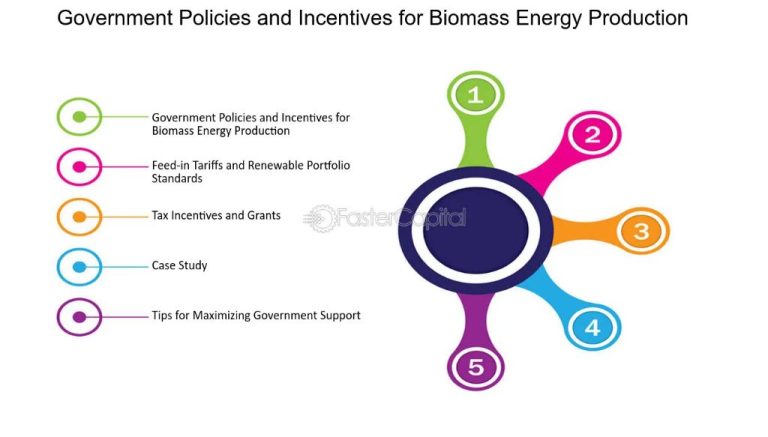Does Bioenergy Ribose Work?
What is bioenergy ribose?

Bioenergy ribose is a supplement form of the simple sugar D-ribose. It is marketed as an energy booster and performance enhancer. D-ribose is a pentose monosaccharide that is found naturally in all living cells. It is a key structural component of important compounds like RNA, ATP, and other energy molecules (1).
While the human body can produce ribose on its own, some companies claim supplementing with large doses of purified D-ribose (bioenergy ribose) can enhance energy, improve athletic performance, and boost heart health. Bioenergy ribose is manufactured through a fermentation process using a strain of Bacillus subtilis bacteria (2).
Sources:
(1) https://www.alescosrl.com/en/ingredienti-funzionali/bioenergy-ribose/
(2) https://www.ncbi.nlm.nih.gov/pmc/articles/PMC7009719/
Proposed benefits of ribose
Ribose supplements are promoted to provide several potential health benefits, although more research is still needed on some of these claims. According to Healthline, some of the proposed benefits of ribose include:
- Increasing energy – Ribose is involved in ATP production, so some think it may help boost energy levels.
- Improving heart health – Some research suggests ribose can improve certain markers of heart function in people with cardiovascular conditions.
- Reducing muscle soreness – A few studies indicate ribose may help speed muscle recovery after exercise.
- Relieving fibromyalgia – Small studies show ribose may lower symptoms like pain, fatigue, and sleep problems in fibromyalgia patients.
Proponents claim ribose works by supporting cellular energy production. However, larger, more robust studies are still needed to verify many of these benefits in different populations.
Research on ribose and energy
Several studies have examined the effects of ribose supplementation on energy levels and exercise performance. A 2012 randomized crossover study published in the Journal of Strength and Conditioning Research found that taking 10 grams of ribose daily for 3 days prior to intense cycling exercise increased peak power output and decreased feelings of soreness and fatigue compared to placebo (https://www.ncbi.nlm.nih.gov/pmc/articles/PMC5959283/).
Another study in 19 healthy men published in European Journal of Nutrition in 2015 found that taking 5 grams of ribose twice daily for 6 days increased energy levels and concentrations of ATP, a molecule that provides cellular energy (https://www.healthline.com/nutrition/d-ribose).
However, other studies have shown no significant benefits. A 2020 study in the Journal of the International Society of Sports Nutrition found that 10 days of ribose supplementation did not improve high-intensity interval training performance in 24 recreationally active men.
Overall, research on ribose for boosting energy and exercise performance has been mixed. More high-quality studies are needed to determine efficacy.
Research on ribose and muscle strength
Several studies have examined the effects of ribose supplementation on muscle strength and performance. A randomized, double-blind, placebo-controlled trial published in Medicine & Science in Sports & Exercise found that recreational bodybuilders taking 10 grams per day of ribose for 4 weeks experienced significant increases in muscular strength, endurance, and anaerobic capacity compared to those taking a placebo (https://www.sciencedirect.com/science/article/abs/pii/S0011393X02800546).
Another study published in the Journal of the International Society of Sports Nutrition looked at the effects of ribose combined with creatine in male athletes. Those who took the ribose-creatine combination for 6 weeks showed greater gains in muscle strength and power compared to creatine alone (https://www.ncbi.nlm.nih.gov/pmc/articles/PMC7418385/).
However, a 2017 study in the Journal of the International Society of Sports Nutrition found that ribose supplementation did not enhance high-intensity exercise performance in recreationally active males when combined with either caffeine or placebo (https://www.ncbi.nlm.nih.gov/pmc/articles/PMC5738882/).
Overall, the research suggests ribose may provide modest benefits for muscle strength and performance in some populations, but results are mixed.
Research on ribose and heart health
Several studies have examined the effects of ribose supplementation on heart health, particularly in individuals with congestive heart failure. A 2004 study published in Pharmacotherapy (https://www.ncbi.nlm.nih.gov/pmc/articles/PMC2716264/) found that supplementing with ribose (5 grams 3 times per day for 3 weeks) improved exercise tolerance and quality of life in CHF patients. Researchers concluded that ribose supplementation can improve ischemic threshold and enhance diastolic function in CHF.
Another study published in Life Extension Magazine (https://www.lifeextension.com/magazine/2019/6/heart-failure-and-ribose) looked at ribose’s mechanisms for improving heart function. They found ribose can help restore ATP energy levels in the heart muscle, improve diastolic function, enhance exercise tolerance, and minimize symptoms of shortness of breath and fatigue in CHF patients. Overall, research indicates 5 grams of ribose taken 3 times daily can significantly improve heart muscle function in individuals with congestive heart failure.
Other Potential Uses of Ribose
In addition to energy and heart health, ribose is being studied for some other potential benefits:
Skin health – A small study found that taking a cream containing ribose and other ingredients improved skin elasticity and hydration in middle-aged women after 8 weeks (1). More research is needed.
Weight loss – Some early research shows ribose supplements may increase fat burning during exercise. However, the evidence is limited (2).
Anti-aging – There is interest in whether ribose can help slow aspects of the aging process. Animal and lab studies hint at benefits, but human research is lacking (3).
While early research is intriguing, more high-quality human trials are needed to confirm if ribose offers benefits beyond energy and cardiovascular health.
1. https://www.webmd.com/vitamins-and-supplements/ribose-uses-and-risks
2. https://www.webmd.com/vitamins/ai/ingredientmono-827/ribose
3. https://www.webmd.com/vitamins-and-supplements/ribose-uses-and-risks
Is ribose safe?
According to WebMD (Ref 1), ribose is likely safe for most people when taken by mouth in appropriate doses for up to 12 weeks. However, there are some potential side effects to be aware of.
The most common side effects of ribose include:
- Nausea
- Heartburn
- Stomach upset
- Diarrhea
- Headache
Ribose may also cause low blood sugar, especially when taken with diabetes medications (Ref 2). People with diabetes or hypoglycemia should use caution with ribose.
There is not enough research on the safety of taking ribose long-term or during pregnancy and breastfeeding. For this reason, it is recommended to limit use to 12 weeks or less (Ref 1).
As with any supplement, it’s recommended to start with a low dose and increase slowly while monitoring for side effects. Follow the dosage instructions on the product label or consult your healthcare provider.
Overall, ribose is likely safe for short-term use in healthy individuals at appropriate dosages. But potential side effects need to be considered, especially for people with diabetes or hypoglycemia.
References:
- https://www.webmd.com/vitamins/ai/ingredientmono-827/ribose
- https://www.webmd.com/vitamins-and-supplements/ribose-uses-and-risks
Recommended dosages
According to WebMD, the common recommended dosage of ribose is 5 grams taken three times per day for a total of 15 grams per day. This dosage has been used safely in studies for up to 12 weeks.
VeryWell Health states that the generally recommended dosage of ribose is between 5-10 grams per dose, up to three times per day. This equates to a total daily dosage of 15-30 grams. Doses up to 60 grams per day have been used in some studies, but higher doses may increase the risk of side effects.
MedicineNet reports that studies have used a wide range of dosages, from 2 grams per day up to 15 grams per day. They state that 5-10 grams taken 1-3 times per day is likely a safe and effective dosage range for most adults.
It’s generally recommended to start at the lower end of the dosage range and increase slowly as needed. As with any supplement, it’s best to follow dosage instructions from your doctor.
Bottom line on ribose
Based on the current research, the evidence on whether ribose supplements work is mixed. Some studies have found benefits for improving energy, strength, and heart function in certain groups, while other studies have shown no significant effects.
For people with certain heart conditions like coronary artery disease, some research suggests ribose supplements may increase exercise capacity and improve heart function (source). However, larger and longer-term studies are still needed.
For athletes and those looking to boost energy, there is not sufficient evidence that ribose provides benefits. Some small studies show ribose may reduce fatigue and increase strength in areas like leg muscles, but multiple reviews conclude larger, high-quality studies are lacking (source).
Overall, more research is still needed on the optimal dosage, duration of treatment, and long-term safety of ribose supplements. Talk to your doctor before taking ribose, especially if you have a heart condition or diabetes. While generally recognized as safe in smaller doses, high doses of ribose could potentially cause side effects.
Alternatives to Ribose
There are other natural options besides ribose that may help boost energy, muscle strength, and heart health. Some alternatives include:
Coenzyme Q10 – An antioxidant that plays a role in energy production and may improve symptoms in people with heart failure (https://www.ncbi.nlm.nih.gov/pmc/articles/PMC982721/). The recommended dosage is typically 100-200 mg per day.
Creatine – A compound that provides energy for muscle contraction and may increase muscle mass and strength when combined with exercise (https://www.webmd.com/vitamins-and-supplements/creatine-uses-and-risks). The typical dosage is 5 grams per day.
B Vitamins – Important for energy production and heart health. Vitamins like B12, folate, and B6 play key roles in metabolism and red blood cell production (https://www.health.harvard.edu/staying-healthy/listing_of_vitamins).
Omega-3 Fatty Acids – Help reduce inflammation and provide cardiovascular benefits. Fatty fish, fish oil supplements, flax seeds, chia seeds, and walnuts are good sources.
Magnesium – An essential mineral many are deficient in. May help increase energy, muscle function, and heart health. Found in dark leafy greens, beans, nuts, seeds, and whole grains.
Adaptogenic Herbs – Herbs like ashwagandha, panax ginseng, and rhodiola rosea help the body adapt to stress and may boost energy and stamina when fatigued.
Getting adequate sleep, physical activity, and managing stress are also important in maintaining energy levels and heart health.







